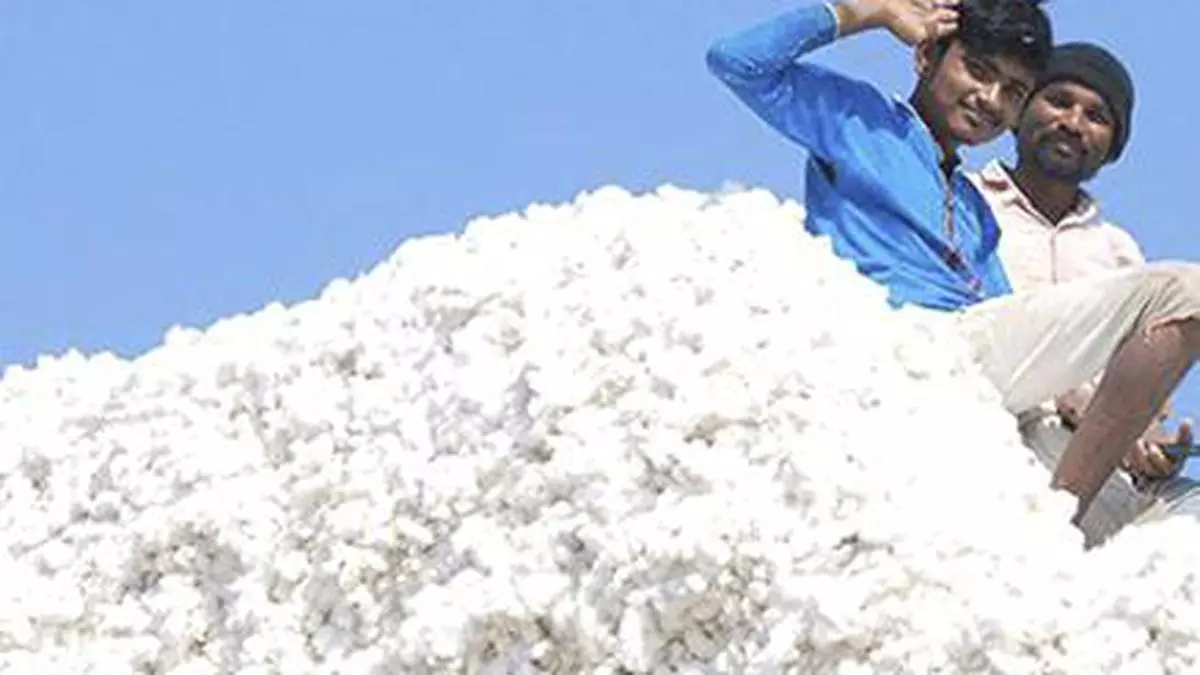Indian cotton industry, trade want Govt to keep quality order at bay
With the Cotton Bales (quality control) Order, 2023, set to come into force from August 28, textile organisations and trade associations have begun approaching the Textile Ministry for putting off the implementation to a later date.
The order, better known as cotton QCO (quality control order) was notified by the Union Textiles Ministry on February 28, saying that it will come into force 180 days after its publication in the Gazette. It applies to processed cotton (ginned) and unprocessed or raw cotton (kapas).
The order prescribes certain norms for bales of ginned cotton as well as requirements of the materials used for the packing of bales.
Trouble for imports too
The QCO specifies that the moisture content for cotton bales be 8 per cent. It requires ginning mills to test at least 5 per cent of the bales, while the trash content in the bales should not be more than 3 per cent.
According to K Venkatachalam, chief advisor, Tamil Nadu Spinning Mills Association (TASMA), the QCO will apply to imported cotton too and this could create some “trouble”.
“Signing of contracts for imports of cotton need to be executed very carefully,” he told businessline.
TASMA president AP Appukutti, in a memorandum to Commerce and Textiles Minister Piyush Goyal, wanted the implementation of the QCO postponed until a consensus is arrived at among all stakeholders in domestic and imported cotton.
He urged the minister to issue a specific order to exempt imports from the order as it would be re-exported by adding value in the form of quality yarn.
Appukutti said many of TASMA members have entered into contracts with foreign shippers from countries such as Australia, the US and West Africa to import cotton and these would arrive at Indian ports in the first or second week of September.
Also, countries abroad have their own standards and it may be difficult for shippers to meet the standards, he said.
Weather impact on moisture
On Wednesday, the Cotton Association of India (CAI) wrote to Commerce and Textiles Minister Piyush Goyal urging him to put off the implementation of the QCO by a “minimum of one or two years”.
CAI president Atul Ganatra told Goyal that ginners will find it difficult to ensure 8 per cent moisture in cotton bales. This is because during October-December the moisture level in lint (processed cotton) will be 10-12 per cent, while in kapas (raw cotton) it will be 15-25 per cent.
The CAI president said ginners are required to test 5 per cent of the bales but they lack adequate infrastructure for this. Referring to the maximum limit for trash content, he said kapas from Rajasthan, Punjah and Haryana have more than 4 per cent trash.
Issue raised with BIS
Similarly, the trash content in V-797 cotton is 12-15 per cent in view of the variety’s basic characteristics. “Cotton is a natural product and, therefore, it is extremely difficult to achieve standardisation of cotton parameters,” Ganatra said.
The issue had been taken up with the Bureau of Indian Standards, too, he said and urged Goyal to hold discussions with his association.
On the other hand, the Karnataka Cotton Association (KCA) has written to JK Gupta, Scientist-E and Head (Textiles) at BIS, seeking a meeting between the Textiles Ministry and ginners to address and clarify “all the confusion” surrounding the QCO.
The association president Shantilal M Ostawal said implementation of the QCO should be deferred until proper testing infrastructure is available as there are only a few labs that are accredited by National Accreditation Board for Testing and Calibration Laboratories (NABL).
‘Implement at APMC yards’
The ginning industry is prepared to adhere to all prescribed packaging requirements but it is imperative to apply the parameters at the Agricultural Produce Marketing Committee (APMC) yards from where kapas are procured first, he said.
Such an approach will ensure that moisture levels do not affect the quality parameters of cotton. “…achieving fixed parameters may not always be feasible due to inherent variations in the raw material,” Ostawal said.
The KCA president said the establishment of a single and monopolistic laboratory may lead to controversies. Therefore, sellers and buyers should mutually agree on the usage of such labs and “be limited to resolving disputes to prevent disruptions in business operations”.
In the case of any ambiguity or uncertainty in the system, the ginning sector would be willing to withhold operations until all issues are cleared and resolved, he said.
